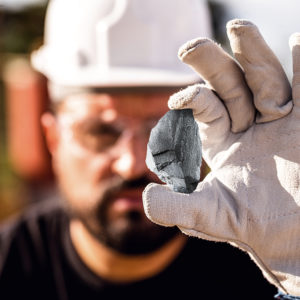In July, the United States finalized a groundbreaking deal with MP Materials, a rare earth company. More recently, it greenlit what will be the nation’s only domestic source of antimony and signaled interest in taking an equity stake in Lithium Americas. It appears that the United States recognizes that countering China’s dominance in critical mineral supply chains will require a strategic approach, one that includes targeted financing and reducing burdensome federal regulations.
Currently, China is the undisputed global leader in critical minerals, controlling 60 percent of rare earth element mining and 90 percent of global processing. The United States remains import-reliant on 10 or more of the 50 minerals the U.S. Geological Survey classifies as critical, and majority-dependent on imports for nearly 30. Not to mention that Chinese firms have pledged up to $250 billion in overseas clean-tech manufacturing, an unprecedented surge that surpasses the $200 billion the United States invested in the four years of the Marshall Plan during its industrial dominance. The majority of that investment has happened since 2022.
This is bad news for anyone concerned about the environment, national security, geopolitical implications, or even human rights. China is not a reliable partner, with a troubling record of environmental degradation and poor labor practices, including state-imposed forced labor of Uyghurs and other ethnic minorities.
Environmental standards are equally weak. Concerns about China weaponizing its control are not alarmist: at the end of 2024, it banned exports of antimony, gallium and germanium to the United States, minerals critical for flame retardants, semiconductors, batteries, solar cells and the military.
Unfortunately, America is not positioned to counter China’s stranglehold. With mine development averaging nearly three decades, the United States has the second-longest timeline in the world, shorter only than Zambia. A major driver of these delays is the permitting process, which can take seven to 10 years to complete. By comparison, countries with similar standards, such as Canada and Australia, typically complete permitting for these projects in about two years.
Additionally, a critical challenge for American mining operations is unfavorable market conditions. Long development timelines make it risky for investors to back these capital-intensive projects. Compounding this problem is that China can produce minerals at artificially lower costs due to weak environmental and labor standards. Furthermore, China’s near-monopoly allows it to flood the market — something it has done in the past — to undercut American producers, further weakening the business case for American mining operations.
As it stands, China is poised to dominate global critical mineral supply chains. We don’t have to cede that control.By fostering a favorable permitting environment and leveraging available financing tools, we can regain control and ensure a safe and secure supply for ourselves and our allies
The MP Materials deal was groundbreaking for its comprehensive approach to brutal market realities. The administration isn’t just investing $400 million for an effective 15 percent ownership stake; it has also secured a 10-year off-take agreement for all of the facility’s magnet production and established a 10-year price floor for neodymium-praseodymium oxide, which is used in magnet production. This gives MP Materials revenue certainty, even if China floods the market and drives prices down.
Additionally, the greenlighting of Perpetua Resources’ mine in Idaho is a step in the right direction as we work to ensure safe, secure and responsible supplies of the minerals needed to power our future. After nearly a decade of review, the mine is now poised to supply a critical mineral that China previously banned for export.
To expedite the development timeline of critical mining projects in America, we need to reform laws such as the National Environmental Policy Act, which typically takes four years for its highest level of review, as well as the judicial review process, which can add further delays and uncertainty. Expediting projects doesn’t mean cutting corners. It means moving them forward quickly and responsibly, without unnecessary delays. The bottom line is that we should be mining here, where we have some of the world’s highest labor and environmental standards, and efficient permitting is critical to making that happen.
America can no longer sit back and watch China dominate critical mineral supply chains. We must act to build a permitting and financing framework that brings these supply chains back home and strengthens cooperation with our allies.
Either we act, or leave ourselves and our allies at the mercy of China.


